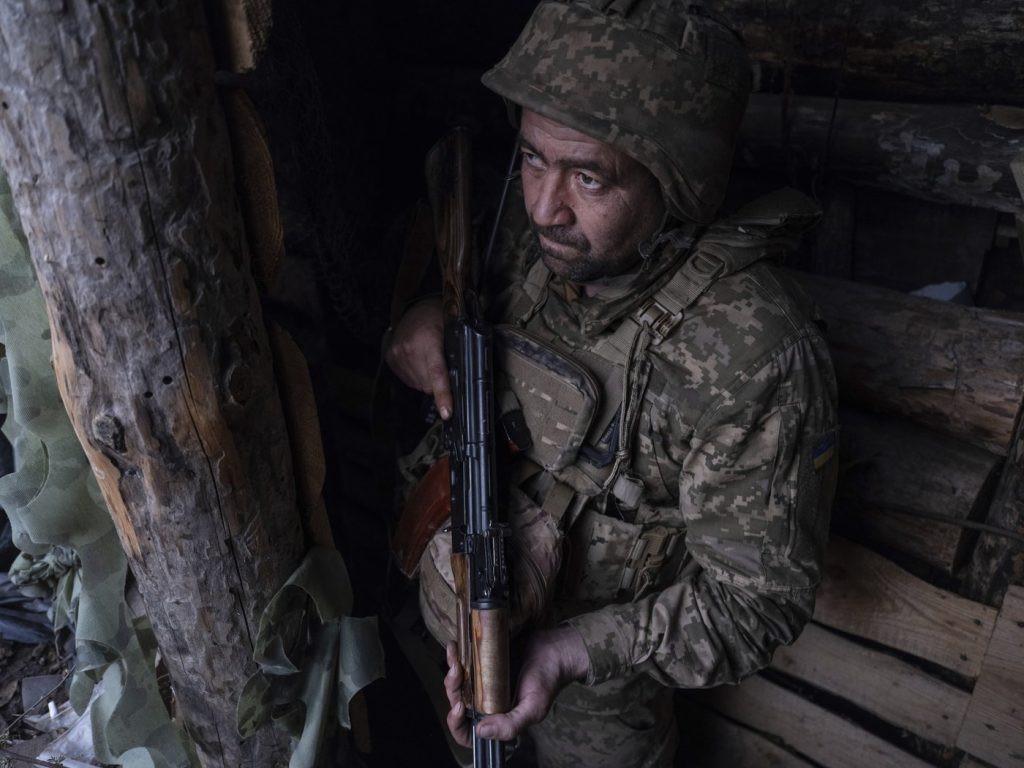LONDON (AP) — President Donald Trump has been advocating for Ukraine to cede territory to Russia as a means to end the ongoing war, raising concerns in Europe about the implications of such a demand. He has suggested that he might withdraw support if a deal proves to be too challenging, catching the attention of Ukraine's European allies, who deem the war essential for the continent's security.
Trump has openly criticized Ukrainian President Volodymyr Zelenskyy, blaming him for extending the conflict by resisting calls to surrender Crimea, which is currently occupied by Russia. The proposed "land-for-peace" strategy suggests a dramatic departure from the post-World War II conventions that maintain borders should not be altered through military force. François Heisbourg, a special adviser at the Foundation for Strategic Research in Paris, noted that accepting such a plan would disrupt the consensus established after the devastating world wars.
In the event of reduced U.S. support, diplomats are exploring various scenarios that include the U.S. halting direct aid to Ukraine while potentially allowing European nations to provide critical American intelligence and weaponry. Analysts believe that Ukraine's ability to continue its fight would largely hinge on European commitment to supply funding and military resources, with the urgency of filling any gaps left by Washington's withdrawal.
Historically, new U.S. aid initiatives for Ukraine have stalled since Trump's presidency began, despite European nations collectively offering more financial assistance than the U.S. As of now, Europe has contributed approximately $157 billion in aid, exceeding U.S. support by around $26 billion. Although European nations are exploring various means to fund Ukraine, including the seizure of frozen Russian assets, experts like Heisbourg emphasize that financial resources alone cannot replace advanced weaponry necessary for defense.
Europe's military capabilities have been hindered by decades of downsizing since the Cold War, leading to challenges in rapid military production and a reliance on U.S. military assets. While Ukraine has boosted its production of ammunition and drones, replacing advanced American weapon systems such as air defense mechanisms would be significantly more difficult.
Since the outbreak of the war in February 2022, Russia has relentlessly targeted Ukraine, deploying an array of missiles and drones in its attacks. Notably, the American Patriot air-defense systems have been crucial in protecting Ukraine's infrastructure from these aerial assaults. Ukrainian President Zelenskyy recently requested to purchase additional Patriot systems, a plea that Trump dismissed, suggesting it is unrealistic to expect support against an adversary as formidable as Russia.
European countries are currently scrambling to procure weapons for both their own defense and Ukraine's needs, yet face hurdles related to capacity and a fragmented defense industry. Although France and Italy have supplied air-defense systems, the consensus is that U.S. production capabilities and stockpiles vastly outmatch those of Europe.
Should Trump implement a ban on U.S. weapons exports and transfers to Ukraine, this would effectively preclude European nations from supplying U.S. weaponry that includes American components, facilitating a substantial shift in the dynamic between the U.S. and its allies. Experts warn that such a move would not only cripple Europe's ability to assist Ukraine but could also transform the U.S. from an ally into a potential adversary in the eyes of European leaders, creating rippling effects on the defense sector in America.
Past episodes of intelligence sharing have demonstrated the critical role of U.S. surveillance capabilities, such as satellite reconnaissance, in aiding Ukraine's military strategy. The potential cessation of such support would compel Ukraine to seek alternatives, including commercial satellite systems. However, creating a European satellite alliance to replace existing capabilities remains a formidable challenge.
While the loss of U.S. support could heighten the death toll in Ukraine, it does not necessarily equate to an immediate collapse of the country. Should Kyiv choose to continue fighting without U.S. aid, European countries will need to enhance their military commitments and bolster collaborative defense strategies moving forward.










